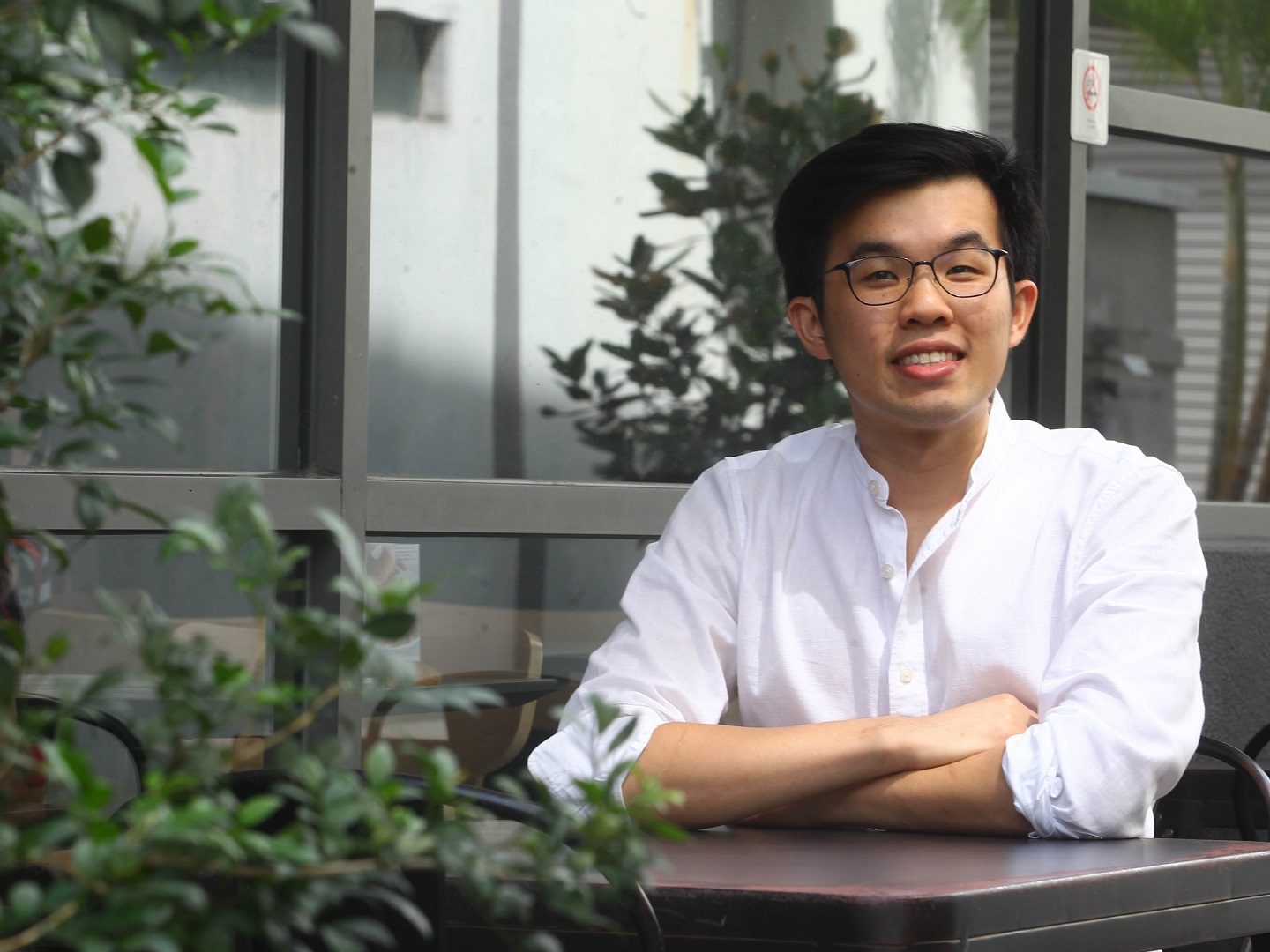
Jun is the eponymous author behind recipe development site Jun & Tonic (Photo: Patrick Goh/The Edge)
Excitement requires you to be in the thick of action — in stadium stands for a football match, for instance, the cheering crowd and live game coaxing you to fever pitch. Or perhaps you are watching it on a large screen, with the surround sound throwing you onto the field, up close with the players as they dodge and tackle. Enjoyment requires sensorial immersion.
But how much? Football matches used to be broadcast over the radio, and by sound alone pull listeners to the edge of their seats or to their feet. Ah, you say, but football has fast-paced, high-intensity action in its favour. What if the subject was something quiet, such as food?
Loh Yi Jun is putting that idea to the test with his podcast, Take a Bao. The name is a clever play on the performer’s plaudit, inviting Asian food to share its moment in the spotlight.
take_a_bao_podcast.jpg
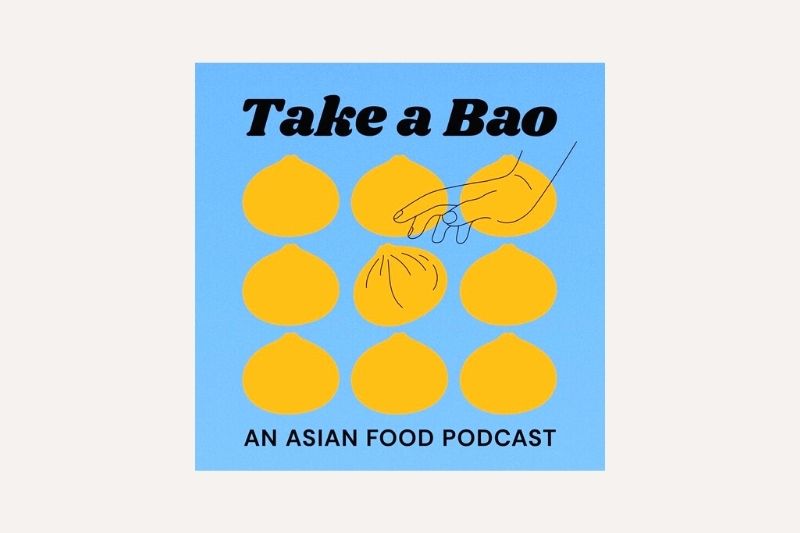
“One of my biggest inspirations is the Gastropod podcast — also a pun, since gastropods refer to snails — which looks at food through the lens of science and history,” says Jun, as he is best known. “There was one really memorable episode in which co-hosts Cynthia Graber and Nicola Twilley talked about cranberries by American agricultural cooperative Ocean Spray. They went into a cranberry bog and were squelching around in it and having fun. I felt like I was in there with them. Although food is a visual and sensorial product, the audio medium is very powerful [in translating this].”
And Jun has the voice and personality for audio. He immediately puts guests at ease with his friendly curiosity while his warmth and assurance invites listeners to, well, wade into bogs with him, as he sets out to uncover the misunderstood, little-known or most interesting elements of Asian cuisine.
He is also familiar enough with the food universe to be able to present these conversations. A chemical engineering degree from Cambridge was quickly shelved after graduation (“I had to give my parents something”, he jokes) in favour of culinary school in London and Paris, followed by a six-month stint at Blue Hill at Stone Barns in New York.
Jun is now the eponymous author behind recipe development site Jun & Tonic — shortlisted for the Saveur Blog Awards’ Best New Voice in 2018 — with divine, if unorthodox, experiments such as Kimchi Carbonara and miso-laced banana bread with an umami swirl amid buttery, caramelised notes. Additionally, he contributes to titles such as Taste magazine and the award-winning Food52, as well as hosts the Breaking Bread segment on BFM. Each represents a different facet of his personality and his relationship with food, from the personal, fun and creative work he does on Jun & Tonic to the more intentional, educational content of Take a Bao.
kimchicarbonara.jpg
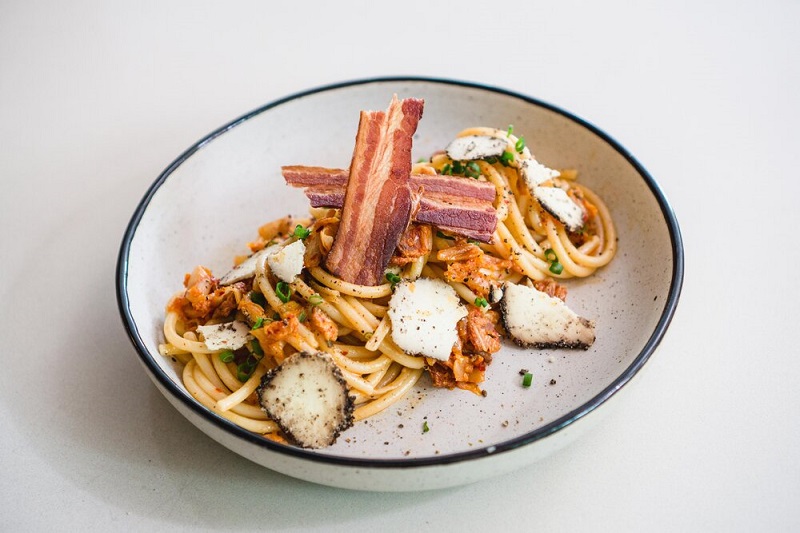
The podcast’s launch last year coincided with heated debates about appropriation and representation in the culinary landscape. Even institutions such as Bon Appétit magazine were not spared the controversy, with allegations of minorities being overlooked, even looked down upon, in the Western-dominated perspectives that governed global conversations about and attitudes towards food. As a Malaysian based in Kuala Lumpur writing for a predominantly American audience, Jun discovered that his segments sometimes organically veered into political issues such as the decolonisation of food or debunking its exoticism as seen through Western lenses. Anyone else may run the risk of preaching or appearing condescending, but so genial is Jun’s manner that it straddles the right side of sharing, rather than sermonising.
“The idea of a podcast on Asian food had been brewing for a few years,” he continues. “The first eight episodes were just a tester. There are so many smaller stories in Asian food that are not being talked about on the international stage. People talk about kimchi and sushi and all these things that have gone mainstream, but there are countries beyond China and Japan that have really interesting culinary practices.”
Each episode highlights a particular ingredient, culture or trend with guest speakers comprising relevant industry or community representatives. Since it speaks to a global audience, Jun takes care to contextualise very Malaysian subjects such as kopitiams or kuih.
“I knew I wanted to tell a story about durians,” he illustrates. “Musang King has come to dominate the industry in recent years and I wanted to find out why. For that first episode (“The King of the King of Fruits”), I reached out to a few key people: writer Lindsay Gasik, Jimmy Loke of Jimmy’s Durian Orchard and Daniel Yong of Kami Food. Lindsay is an obsessive cataloguer; she had this great analogy in which she compared durian varieties to dog breeds. Jimmy spoke about the agricultural element. And then, to tie it into a bigger narrative, Daniel — who is exporting all these durians to China — helped us to understand its appeal and significance there.
take_a_bao_-_trisha_toh_and_calvin_goh.jpg
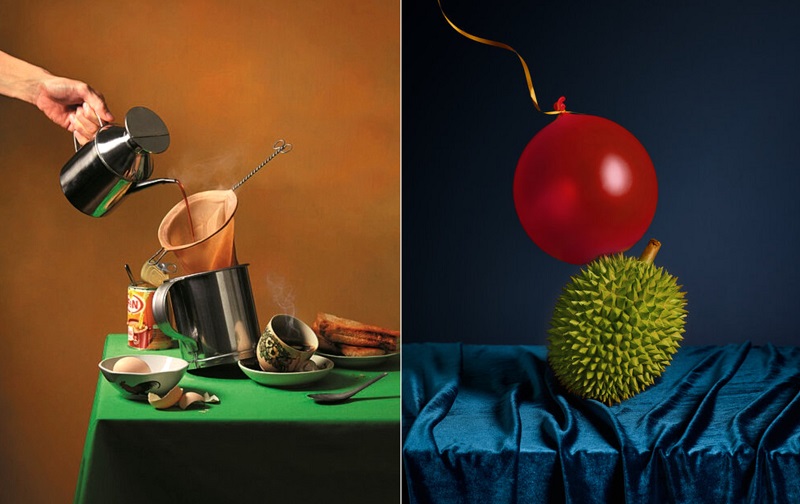
“Across my work, even with the blog and food publications, my writing always stems from a place of, oh, these are just things I love and I would like to share that. Then, I started to realise how food goes beyond just eating or sustenance, how it connects people and cultures to history, which is the focus of the podcast. Food politics wasn’t really part of my conversations until the Bon Appétit blow-up. Then, I thought this could be a really interesting platform for that.”
An episode on the Chetti community (“How to Think About Other People’s Food”) is one example. Equipped with a recorder, Jun followed researcher and Unesco chair project manager Eric Olmedo on a visit to the Chetti community.
“I didn’t have any expectations in terms of results, I just thought there was a potential story there. I left thinking the Chetti people and their food deserve more recognition. It’s a tiny community with really interesting food that is an intersection between Nyonya and Indian, with Malay nuances. I collected many cool stories from the people I spoke to, not so much about food but about the culture surrounding it. Rather than talking about Chetti food, I spoke from the perspective of my learning about a culture that was just in my backyard. For season two, I’m doing a show on the food of refugees in Malaysia. Pieces like these showed me how food can really tell the stories of the under-represented.”
And these are stories that especially need to be heard, Jun believes.
“I do feel that some food stories deserve to be told more than others,” he says. “The saga with Bon Appétit started precisely because the stories people thought deserved to be told weren’t being told. It can be quite subjective. I only pursue pieces I’m personally invested in. For episodes like the upcoming segment on refugees, I make it a point to speak to people from the community to understand what the real stories are. I go to the group and speak directly to sources, which is the first way of honouring the voices of a marginalised people — by allowing them to tell their stories instead of interpreting them or trying to fit them into an agenda or a preconceived narrative.”
take_a_bao_2_-_trisha_toh_and_calvin_goh.jpg
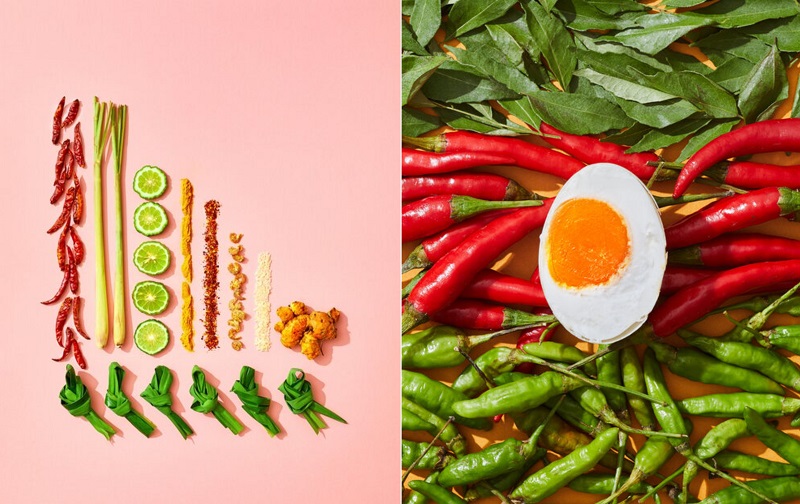
Without the colours and aromas that typically entice people to a culinary product, Take a Bao draws its audience with the tenets of good storytelling: resonance or emotion. This was made especially evident to Jun when putting together an episode on kopitiams (“The Disappearing Coffee Houses of Malaysia”). He interviewed Jack Lee and his son Mervyn of KL institution Yut Kee, founded by Jack’s father in 1928. It is one of the oldest surviving kopitiams in a city rapidly being taken over by third-wave cafés, serving homemade Hainanese fare such as roti babi and pork chop.
“I interviewed Mervyn about taking over the business from his dad and he talked about how it wasn’t an easy choice. Filial piety made him feel he had an obligation to carry it on,” says Jun. “You hear this story a lot. Then, I interviewed Uncle Jack and asked him what it was like helping his father with the business from a young age, and he too mentioned the sacrifice he felt in giving up other interests to come to Yut Kee. Interestingly, when I asked Mervyn what the future of Yut Kee was, he said he didn’t want his daughter to experience what he — and his father — had. That really clicked for me; I realised this generational business could be an almost vicious cycle, and it was so well depicted here. It was a golden moment for the podcast, and it wasn’t something I had planned. I was just trying to get a human-interest story.”
Keeping an open mind and allowing the conversation to go where it must are crucial in story-gathering. Complex topics that require input from others can take over a month, including research, planning and recording. Jun typically gathers two to four hours of content and then edits these into seamless 20- to 30-minute episodes. It is demanding work that requires the exclusion of all else, which means the podcast has to be produced in seasons to free him for other projects in between.
It is well worth the effort, though. Glowing reviews touch on everything from joy at inclusion or representation to pride. The Guardian even recommended Take a Bao in its list of “12 food podcasts that are perfect for cooking to” in August when work-from-homers were venturing into their kitchens more frequently.
“Malaysians living abroad say it’s nice to ‘hear from home’ while Asians outside Malaysia find similarities in ingredients or food that resonate with them,” says Jun. “And oh, do you know Lauren Ko behind Loko Kitchen? She reached out one day to say she had listened to my podcast. I had a fanboy moment.”
The dream is to expand regionally, going beyond Malaysia’s borders to collect stories from its neighbours. “I’d love to go to, say, Vietnam and spend a couple of months there doing this, but I’m not sure how viable that is — I’m still looking into funding and logistics. Podcasts usually make money through ads, but brands here don’t see the appeal of sponsoring them, as the medium isn’t very popular yet in Malaysia,” he explains. That said, he has been approached with some offers for funding and secured a Diverse Voices Media Grant that covered an episode.
Another aspiration is to invest in production quality. The current finished product is nowhere near what he wants it to be, with production pretty “bare bones” for now. He aims to create the sort of evocative shows the US-based NPR (National Public Radio) or Proof by America’s Test Kitchen produce.
Yet, there is something to be said about the current set-up, the intimate, almost raw quality that transports you to a friend’s kitchen, a kopitiam or a wet market, where these conversations are taking place over coffee or while browsing through produce. And there is where the magic of Take a Bao lies: in its honesty and authenticity. A subject that brims with so much heart does not need the fanfare of, say, a football game. Food — and all its sweet, salty, spicy or sensual stories — is sufficiently thrilling in itself.
This article first appeared on Nov 23, 2020 in The Edge Malaysia.


